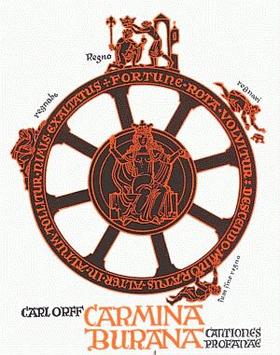Carl Orff's Carmina Burana is one of the most popular pieces of the classical music repertoire. Here the UC Davis Symphony Orchestra, the University Chorus and Alumni Chorus, and the Pacific Boychoir perform at the Mondavi Center at UC Davis. [6/2007] [Show ID: 11787] UC Davis Symphony and Chorus (https://www.uctv.tv/series/579) Explore More Arts & Music on UCTV (https://www.uctv.tv/arts) Art can excite, provoke, calm and inspire us. UCTV showcases excellence in arts and music from classical, jazz, folk, opera and contemporary music to theater, poetry, media arts, dance and fine arts. UCTV is the broadcast and online media platform of the University of California, featuring programming from its ten campuses, three national labs and affiliated research institutions. UCTV explores a broad spectrum of subjects for a general audience, including science, health and medicine, public affairs, humanities, arts and music, business, education, and agriculture. Launched in January 2000, UCTV embraces the core missions of the University of California -- teaching, research, and public service – by providing quality, in-depth television far beyond the campus borders to inquisitive viewers around the world. (https://www.uctv.tv)
Early life
Carl Orff was born in Munich on 10 July 1895,[1] the son of Paula (Köstler) and Heinrich Orff. His family was Bavarian and was active in the Imperial German Army; his father was an army officer with strong musical interests.[4][5] His paternal grandmother was Catholic of Jewish descent.[a][6] At age five, Orff began to play piano, organ, and cello, and composed a few songs and music for puppet plays.[2]
Carmina Burana is a cantata composed in 1935 and 1936 by Carl Orff, based on 24 poems from the medieval collection Carmina Burana. Its full Latin title is Carmina Burana: Cantiones profanae cantoribus et choris cantandae comitantibus instrumentis atque imaginibus magicis ("Songs of Beuern: Secular songs for singers and choruses to be sung together with instruments and magical images"). It was first performed by the Oper Frankfurt on 8 June 1937. It is part of Trionfi, a musical triptych that also includes Catulli Carmina and Trionfo di Afrodite. The first and last sections of the piece are called "Fortuna Imperatrix Mundi" ("Fortune, Empress of the World") and start with "O Fortuna".


Δεν υπάρχουν σχόλια:
Δημοσίευση σχολίου